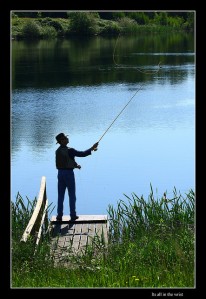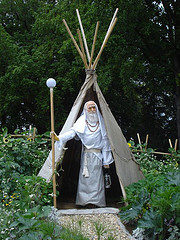Maybe you already suspected this, but docs think you don’t know much about herbal medicine. And, in a recent survey reported in Drug and Therapeutics Bulletin, they also admit they don’t know much about natural remedies either. They perceive botanical illiteracy on both sides and they are right. Most of us couldn’t tell a ginger root from a day lily bulb.
It’s not always been this way. People grew their own pharmaceuticals. Their pharmacy was called a garden and, in much of the world, botanicals are still the basis of medical treatment. And, though people don’t know it, much of our own “mainstream” medicine comes from the earth. Aspirin is derived from the willow tree and the early contraceptive pills came from the Mexican yam.

Luckily, in some first-word countries today—not the US— there are doctors who actually study botanical medicines in school and use them regularly in their practice. In Germany, botanical medicine is taught in medical schools and that knowledge is tested in the qualifying exams. Seventy percent of German doctors prescribe botanicals and these medicines are reimbursed by their public health insurance program.
Where to find information when you live in Botanical Dum-Dum Land
All Americans should be better informed about botanical meds. Some of these natural treatments work very well, without the expense and side effects of prescription drugs. The caution here is that there are sleazy products and sleazy people promoting all kinds of “natural” treatments, so the consumer has to weed out the the good from the bad.
Luckily, there’s at least one doctor in this country who has studied botanical treatments and is also up on the latest in higher tech medical advances. He is Dr. Andrew Weil, graduate of Harvard Medical School and a scholar of natural botanicals. He has a foot in both worlds and practices integrated medicine.
Dr. Weil is the reliable source of information about what to take for what condition–what plant or supplement helps with colds, infections, high blood pressure, arthritis and the many other ills that flesh is heir to. He tells what natural product to take, how to take it, the actual doses, what to watch for, when not to take it and what prescription drugs don’t mix well with the botanicals.
Find this treasury of information at http://www.drweil.com. On the home page, click on Supplements & Herbs. There’s your little home companion to basic botanical medicine and if your doc needs info about how an incoming cold can be warded off with garlic, that’s the spot.
Will you be believed? I don’t know and have given up trying to convert those who don’t want to know. As someone said, it is hard to convince anyone of a fact when his occupation depends on his not believing it. What I do know is that garlic wards off my incoming colds if I get to the garlic fast enough.
And yes, I still get kissed. And while I’m at it, Happy Wedding Anniversary to Cranky Pants.










